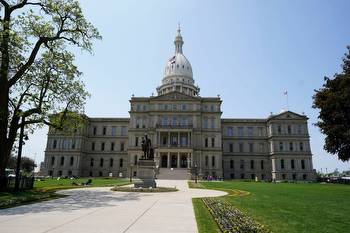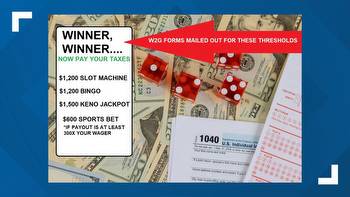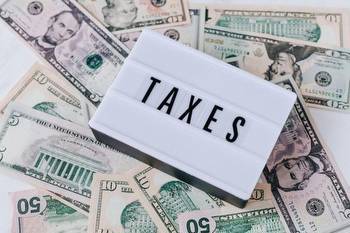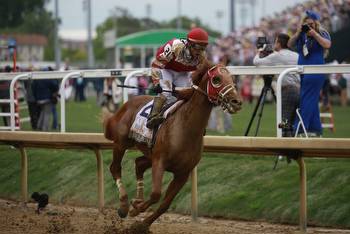Detailed Guide to Gambling Taxes in Pennsylvania in 2023
Gambling taxes are the unfortunate repercussion of scoring a payout. Whether playing online casino games, betting on sports, or participating in the lottery, you’ll need to pay State and possibly federal governments some money.
The good news is that Pennsylvania has one of the lowest tax rates in the country. Moreover, you only need to pay federal tax if your winning exceeds a certain threshold. In this guide, we’ve explained everything you need to know about taxes on gambling winnings.
Taxes on Gambling
Pennsylvania is one of the most liberal US states for gambling. If you are located in the State and are over the legal gambling age, you can play the lottery and casino games and bet on sports. Since 2017, you can also enjoy online gambling in PA using both websites and mobile apps. Gambling taxes are due on winnings from all these types of activities, and these are generally a state tax of 3.07% and a federal tax of 24%.
Calculating Gambling Tax by Activity
Determining if your winnings are subject to gambling taxes can be confusing, so to simplify matters, we’ve outlined when and how much taxes are due according to the gambling activity.
Taxes on Lottery Winnings
Pennsylvania is home to a number of state-based lotteries as well as multi-state draws. As long as you’re participating in a draw that’s sold to you through an authorized ticket vendor, including the Pennsylvania online lottery site, any winnings are subject to the same gambling tax.
This means that even Powerball or Mega Millions in PA are subject to the same taxes on lottery winnings in the State.
The following table outlines state and federal tax on lottery winnings:
Lottery Tax Winnings Example
Let’s imagine that you’ve played the PA Powerball and correctly guessed four white numbers. According to the paytable, you should get a $100 prize. Since this value is below the $600 threshold for federal tax, you will only need to pay state tax. In this example, the tax due is (3.07% x $100) $3.07, leaving you with a profit of $96.93.
Sports Gambling Taxes
Horse racing, pari-mutuel betting and other types of Pennsylvania sports betting activities are subject to very similar tax rules as the lottery. Sports gambling taxes are due to the federal government only when they exceed a value of $600 and are at least 300x the amount of the wager. Moreover, you should deduct the original wager from the winnings before making your determination.
The State has simplified sports gambling taxes which are lower than those of many of its neighbors, including New Jersey. No matter whether you’ve won a bet on the 76ers, are eSports betting, or are backing a top horse at the Kentucky Derby, you’ll always pay a rate of 3.07%
The following table outlines state and federal sports gambling taxes:
Sports Betting Tax Winnings Example
You get into the spirit of March Madness betting and through a number of perfectly placed prop bets, parlays, and futures you win a whopping $650. The total cost of your original wagers was $105, and since your payout is not greater than 300x your wager, you don’t need to pay federal tax. Since you cannot deduct the cost of your wager for state tax, you’ll need to pay 3.07% of $650, or $19.96. After deducting the costs of your wagers and tax, you’re left with a very respectable $525.04 profit.
Taxes on Casino Winnings
Winnings from playing at land-based and online casinos in PA are subject to the same gambling tax. In the case of state tax, a rate of 3.07% applies no matter the game that you’re playing. However, different federal tax rules apply to poker and other casino games.
Federal tax is due on prizes of $1,200 or more on land-based or online slots and bingo. For Keno, you’ll need to win $1,500 or more and you can reduce the cost of the wager first. In the case of poker, you will need to pay federal tax if you win $5,000 or more after you’ve deducted the buy-in.
The following table outlines state and federal gambling tax rates for different casino games:
Casino Tax Winnings Example
Using our slot machine tips, including high RTP games, you win $1,300. You’re understandably ecstatic, but you should keep in mind that with this prize, both state and federal taxes are, unfortunately, applicable. The 3.07% state tax on this prize is equal to $39.91 while the 24% tax is equal to $312. This leaves you with an ultimate payout worth $948.09.
How Much Money Can You Win Gambling Without Paying Taxes?
The Pennsylvania Department of Revenue clearly states that “Pennsylvania taxes resident individuals, estates or trusts on all gambling and lottery winnings from every source”. This means that, unlike in the case of federal gambling tax, you will always need to pay state tax on gambling winnings.
Federal gambling tax, however, is only due when winnings surpass a set threshold. The value of this minimum limit varies according to the gambling activity. The following table outlines the applicable thresholds for land-based and online gambling taxes.
Gambling Tax Forms
In many cases, your gambling winnings are taxed at source, so you will probably not have to worry about paying them. However, you will need to fill in one or more gambling tax forms to satisfy state or federal requirements.
To simplify the payment of taxes on gambling and reduce the amount held at source, you should always provide your social security number when registering your account. In this way, the operator will withhold 25% of winnings instead of 28%.
Gambling Tax Form for State Government
The Commonwealth of Pennsylvania requires all residents to report their gambling winnings by filling in the PA-40 Schedule T. As a resident, you must also report any gambling winnings derived from other states or countries. Moreover, non-residents must also fill in this form if they’ve won any prizes from gambling facilities based in PA.
Federal Forms for Land-Based and Online Gambling Taxes
The casino, sportsbook, or lottery provider is duty-bound to report certain gambling winnings to the IRS. Operators should fill in the W-2G form and send a copy to you. You should keep this form in your records and use it to help you fill in Form 1040 Schedule 1. You should include the winnings on Line 7A ‘Other Income’ and enter the tax withheld on Line 17 ‘Federal Income Tax Withheld’.
Gambling Losses and Taxes in Pennsylvania
Gambling losses can only be deducted from federal tax, not state tax. You must enter itemized losses on Form 1040, specifically on Line 28 or Schedule A. For each loss, you must keep a record of:
- Name and address of casino or sportsbook operator or lottery retailer
- Date and type of wager placed
- Amount lost
You should also keep the original or a copy of the following:
- Wagering ticket or betting slip
- Any canceled check
- Any debit/credit card record
It’s recommended that you check what records your gambling provider can furnish you with. Many new online casinos in PA, for example, automatically keep a record of your individual bets and results. However, no overhead costs, such as accommodation or fuel, can be deducted from gambling winnings.
Answering Common Gambling Tax Misconceptions
In the following section, we’ve clarified myths or misconceptions about gambling taxes in Pennsylvania.
1. How Much Are Taxes on Lottery Winnings?
Unlike in other US states, Pennsylvania does not have a special, and often higher, rate of tax for lottery winnings. Any cash prize won from the State lottery, including the Powerball PA, is subject to a flat state tax of 3.07%. A federal tax of 24% applies to winnings of $600 or higher.
2. How Do I Prove Gambling Losses on My Taxes?
To prove any applicable deductions on gambling taxes, you need to keep proper records of the data and time of each wager and its result and the name and location of each bet. You must also keep copies of any wagering tickets, canceled checks, or bank card records. Enter your itemized gambling losses on Line 28 of Form 1040’s Schedule A.
3. Can I Reduce Taxes on Gambling Winnings with Other Expenses?
No, only direct gambling losses or specific participation costs (buy-ins or wagers) may be used to lower your taxes on gambling. You cannot claim other costs, such as fuel, accommodation, or entertainment. Moreover, you cannot deduct more losses than you’ve won or carry a loss balance forward into the following year.
4. Do Senior Citizens Have to Pay Taxes on Gambling Winnings?
Yes, anyone over 65 years of age must still pay state and federal taxes as explained throughout this guide. However, instead of filling in Form 1040, senior citizens should use Form 1040-SR to benefit from specific deductions.
5. Do You Have to Pay Taxes on Gambling Winnings?
Yes, no matter how much you win, you will be liable to pay at least a minimum amount of state tax. Fortunately, Pennsylvania has one of the lowest income tax rates in the country.
6. Are Gambling Losses Tax Deductible?
Yes, gambling losses are tax deductible as long as they occur in the same year as winnings. You cannot claim more losses than winnings and you cannot carry any losses forward into the next tax reporting year. Before claiming any losses, you must ensure that you’ve got all the necessary records in case you are audited.
7. What Happens If You Don’t Pay Taxes on Gambling Winnings?
Just as is the case for any type of income tax, you might be fined by state or federal authorities. After all, paying a gambling tax is a legal requirement. Moreover, the gambling operator that paid out your prize is legally required to inform the IRS if your prize surpasses a threshold.
Tips on Submitting Forms and Claiming Gambling Losses on Taxes
Nobody enjoys paying taxes on gambling winnings, but by following these simple steps you might avoid any unnecessary hassle.
- Choose the right gambling operator – When selecting a casino or sportsbook operator, you should pick one that is reputable and that offers helpful ways to fill in your tax documents. The best sports betting apps or casino sites provide you with 24/7 online access to your gambling records. Moreover, they offer live chat options if you need further assistance.
- Accept that taxes on gambling winnings are inevitable – It’s your responsibility to ensure that any taxes due by yourself are paid on time to avoid penalties. If you are unsure about when or how to pay these taxes, you can set an appointment with a Pennsylvania Department of Revenue representative who will be able to guide you.
- Be aware of tax deadlines – State and federal tax forms must be submitted by a set date in April of the following year. 2022 taxes, for example, must have been paid by April 18, 2023. To avoid a last-minute scramble to submit your taxes, prepare your state PA-40 and your federal 1040, 1040-SR (for seniors), or 1040-NR (for non-US residents) forms ahead of this deadline.
- Keep ongoing records of wagering losses – It can be very difficult for you to find the necessary records and documentation for gambling activities carried out 12 months ago or longer. The best way to ensure that you save some cash by legally deducting any applicable losses is to keep ongoing records as soon as you’ve made a loss or win.
- Don’t get confused by land-based or online operators – Since 2017, online casinos, sportsbooks, and the state lottery have been permitted to operate legally. Taxes on online gambling sites are just the same as their land-based counterparts. You, therefore, don’t need to worry about whether a win was registered in person or online.
































